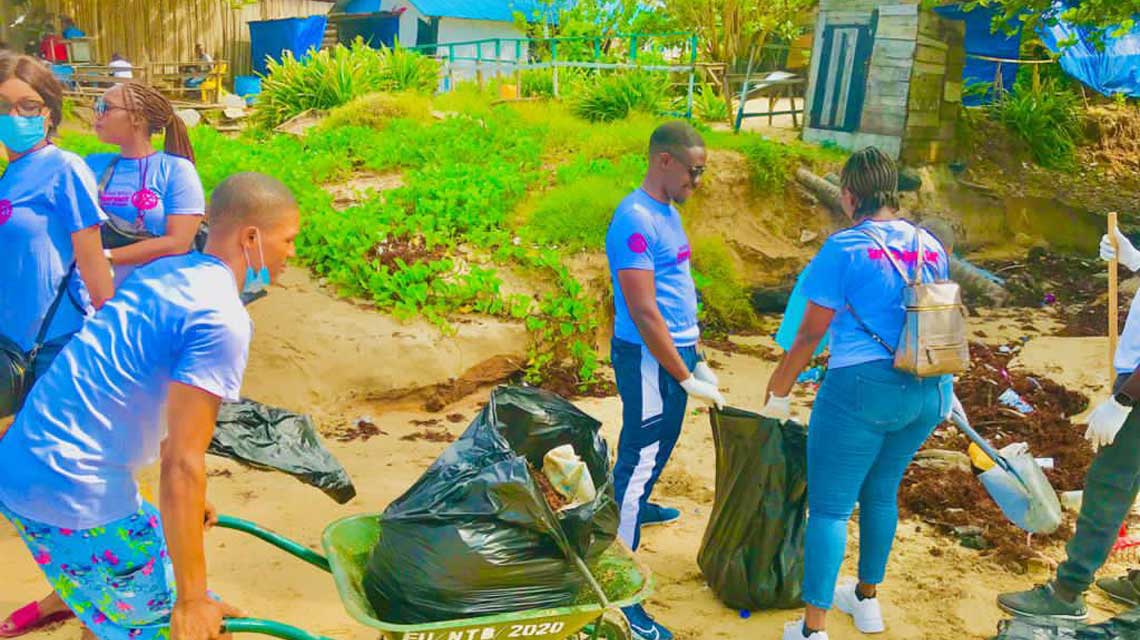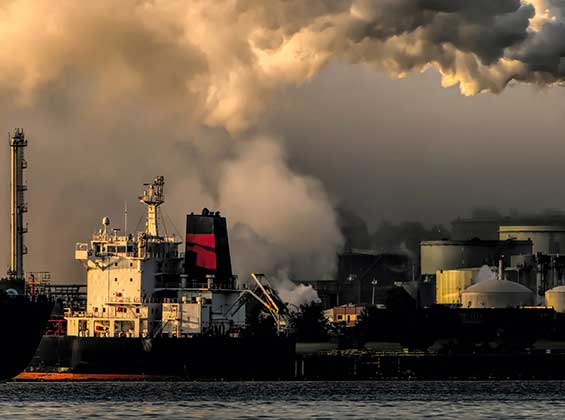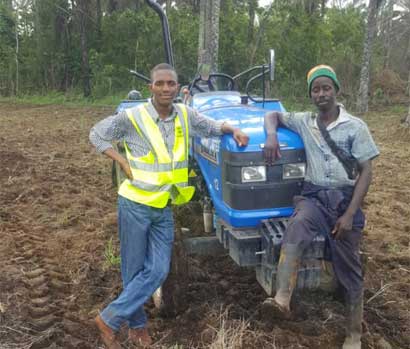- +1 (202) 438-6441
- earthregenerativeprojectsl@gmail.com
-
32 Wallace Johnson St Freetown SL

Environmental Cleaning
- $0 Raised Of $0
Positive cleaning of the environment can have several beneficial effects on climate change:
Our world is facing significant environmental challenges, from pollution and deforestation to climate change and declining biodiversity. It is crucial that we take immediate action to protect and restore our planet for future generations. To address these pressing issues, Earth Regenerative Project Sierra Leone (EaRP-SL) NGO has launched an Environmental Cleaning Initiative, a comprehensive effort aimed at promoting environmental stewardship and sustainable practices.
Climate change is a global challenge that demands urgent action. Mitigating greenhouse gases is not a choice; it's our responsibility to protect the planet for future generations."
Environmental Cleaning focuses on three main areas: waste management, pollution control, and ecosystem restoration. By adopting a holistic approach, we can tackle multiple environmental problems simultaneously and create a more sustainable future.
EaRP-SL NGO is committed to improving waste management systems. This includes promoting recycling and composting, reducing single-use plastics, and implementing effective waste disposal practices. By encouraging individuals, businesses, and communities to adopt responsible waste management habits, we can reduce the amount of waste that ends up in landfills or pollutes our oceans and waterways.
Pollution control is a key aspect of our initiative. We aim to raise awareness about the detrimental effects of pollution and advocate for stricter regulations and enforcement. Through educational campaigns, we will encourage the use of clean energy sources, promote eco-friendly transportation, and support industries in adopting cleaner production methods. By reducing air, water, and soil pollution, we can protect human health and preserve the integrity of ecosystems.
Ecosystem restoration is vital for maintaining biodiversity and mitigating climate change. We will collaborate with local communities and organizations to restore degraded habitats, plant trees, and protect endangered species. By reestablishing healthy ecosystems, we can enhance natural carbon sequestration, improve water quality, and create sustainable habitats for wildlife.
To achieve our goals, partnerships, and collaboration are essential. EaRP-SL NGO will work closely with governments, businesses, non-profit organizations, and individuals to mobilize resources, share knowledge, and implement effective environmental policies and practices. By fostering a sense of collective responsibility, we can make a significant impact on the health of our planet.
Earth Regenerative Project Sierra Leone (EaRP-SL) NGO Environmental Cleaning Initiative is a comprehensive effort to address environmental challenges through waste management, pollution control, and ecosystem restoration. By promoting sustainable practices and fostering collaboration, we can create a cleaner, healthier, and more sustainable future for all. Join Earth Regenerative Project Sierra Leone (EaRP-SL) https://earpi-org.preview domain.com/register.html in this crucial endeavor to protect and preserve our planet.
Reduce Greenhouse GasesReducing greenhouse gas emissions is crucial to combat climate change and limit global warming. Here are some effective strategies to help achieve this goal.
Greenhouse gases pose significant dangers to our planet and its climate system. These gases, including carbon dioxide (CO2), methane (CH4), and nitrous oxide (N2O), are essential for trapping heat from the sun and maintaining Earth's temperature at a habitable level. However, when their concentrations in the atmosphere increase due to human activities like burning fossil fuels, deforestation, and industrial processes, they enhance the natural greenhouse effect, leading to several adverse consequences.
Climate change is a global challenge that demands urgent action. Mitigating greenhouse gases is not a choice; it's our responsibility to protect the planet for future generations."
First and foremost, elevated levels of greenhouse gases contribute to global warming and climate change. The Earth's average temperature is rising at an accelerated rate, causing shifts in weather patterns, more frequent and severe heatwaves, droughts, and extreme weather events like hurricanes and wildfires. These changes disrupt ecosystems, threaten food and water security, and can lead to the displacement of communities.
The melting of polar ice caps and glaciers due to global warming results in rising sea levels. Higher sea levels increase the risk of coastal flooding, endangering coastal communities and ecosystems. This can lead to the loss of valuable land, infrastructure, and human settlements.
The impacts of climate change extend to health risks, including heat-related illnesses, the spread of infectious diseases, and reduced air and water quality. Furthermore, changes in temperature and precipitation patterns can affect agriculture and food production, potentially leading to food shortages and increased prices.
However, there are significant benefits to reducing greenhouse gases. By curbing emissions and transitioning to cleaner energy sources like wind, solar, and hydroelectric power, we can slow down global warming and mitigate its most severe consequences. Reduced greenhouse gas emissions contribute to stabilizing the climate, making it more predictable and less volatile.
 Eng
Eng
 简体中文
简体中文
 French
French
 العربيّة
العربيّة





